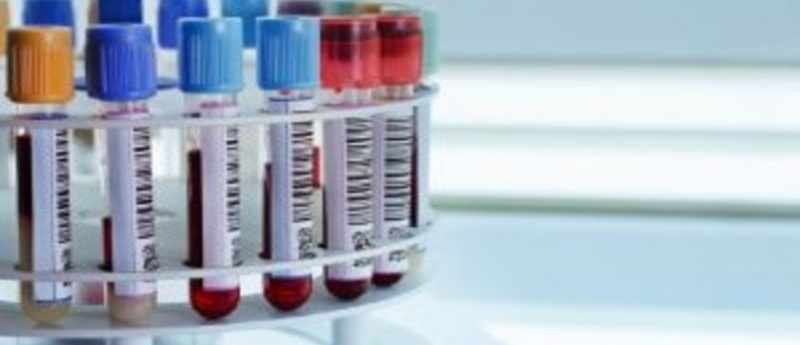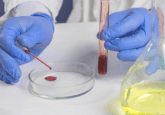ASCO18: Early-stage lung cancer – could blood tests be used as a potential detection tool?

Researchers have revealed a report from the large, ongoing Circulating Cell-Free Genome Atlas (CCGA) study that a blood test may be able to detect early-stage lung cancer in patients; the findings have been announced at the American Society of Clinical Oncology Annual Meeting (1–5 June, IL, USA).
This is one of the first studies to utilize blood tests that analyze free-floating or cell-free DNA as a potential tool for the early detection of cancer.
Currently, the CCGA study has enrolled more than 12,000 of the planned 15,000 participants across 141 sites in the USA and Canada. In this initial sub-analysis, researched explored the ability of three different assays – targeting sequencing, whole-genome sequencing (WGS) and whole-genome bisulfite sequencing (WGBS) – to detect cancer in 127 individuals with stage I–IV lung cancer.
“We’re excited that initial results from the CCGA study show it is possible to detect early stage lung cancer from blood samples using genome sequencing,” explained lead author, Geoffrey Oxnard (Harvard Medical School, MA, USA). “There is an unmet need globally for early detection tests for lung cancer that can be easily implemented by healthcare systems.”
In the USA, annual lung cancer screening with low-dose computed tomography (LDCT) is recommended for people with significant smoking history, but screening is vastly underutilized. Globally, LDCT is not widely adopted due to restraints on cost and lack of health infrastructure.
Blood tests would offer a more simplistic approach and could improve lung cancer screening rates, however, additional validation studies using larger data sets in individuals who have not been diagnosed with cancer would be necessary.
The analysis of cell-free DNA from blood is already used to help choose targeted therapies, but such ‘liquid biopsies’ are generally for individuals with advanced lung cancer only. Until recently, there has been limited evidence to demonstrate cell-free DNA analysis as a feasible option for early detection of lung cancer.
Key findings from the study so far have indicated that among the 127 participants with lung cancer, the biological signal for lung cancer was comparable across the assays and the signal increased with cancer stage. At 98% specificity, the WGBS assay detected 41% of early stage lung cancers and 89% of late-stage cancers, whereas the WGS assay detected 38% and 87%, respectively. The targeted assay detected 51% of early stage cancers and 89% of late-stage cancers.
In addition to this, the investigators revealed that out of the 580 control samples in the sub-study, five (<1%) had a cancer-like signal across all three assays. Of those five participants, two were subsequently diagnosed with cancer, highlighting the potential for such a test to identify early stage cancers.
The researchers are verifying the results in an independent group of approximately 1000 participants from CCGA as part of the same sub-study.
“These are promising early results, and next steps are to further optimize the assays and validate results in a larger group of people,” concluded Oxnard. “With increased sample sizes, machine-learning approaches are expected to improve assay performance.”





